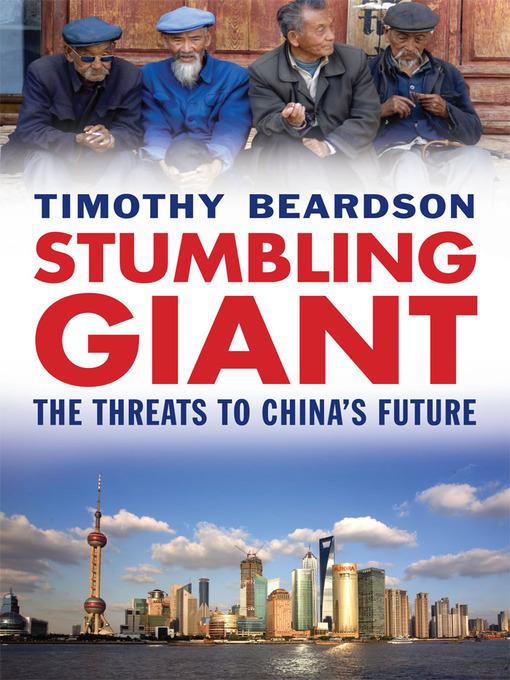
Stumbling Giant
The Threats to China's Future
کتاب های مرتبط
- اطلاعات
- نقد و بررسی
- دیدگاه کاربران
نقد و بررسی

April 15, 2013
A Hong Kong-based executive suggests that the dreaded Chinese juggernaut has a few cracks in its armor. Some doubting Thomases of late have begun to wonder if China really has the stuff to run the world, and Beardson thinks they may have a point. He constructs a concise, readable, albeit finance-heavy roundup of Chinese successes and failures in order to assess its future potential. One important point he emphasizes is China's habit of reverting to old models. From the Ming dynasty to Mao Zedong, he notes, rulers have responded to outside pressures by turning inward rather than opening to new currents, and any stress prompts reversion to the top-down method of control, extending to the most local level. Beardson examines the Chinese political, financial and social structures, backing up his determinations of their good and bad aspects with impressive research and analysis. The rapid growth of the Chinese economy over the last 30 years, he finds, has been dogged by such systemic problems as unemployment, currency snags, massive environmental degradation and an inability to sustain the old cheap-export/fixed-investment model. While a new, innovative model is urgently needed, bureaucratic inertia and lack of integrity inhibit Chinese institutions in nearly every field, most notably science, education and research. Plagiarism, corruption, a vulnerable financial system, income inequality, gender disparities, organized crime, military aggression against its neighbors and cyberaggression against the U.S. all undermine Chinese stability. The nation needs to step up responsibly to its world role and defuse the instinct among many wary countries to "check" it, but ultimately, Beardson concludes, "China is weak where it should be strong and strong where it should be weak." A thoughtful reconsideration of China's actual place in the new world order, based on reality rather than fanciful speculation.
COPYRIGHT(2013) Kirkus Reviews, ALL RIGHTS RESERVED.

June 1, 2013
Since the reforms of Deng Xiaoping from the late 1970s to the early 1990s, the world has witnessed the dramatic rise of China's economy. This reality has caused many to speculate about China's future role as a world power. Beardson (founder, Crosby Financial Holdings, Hong Kong) argues that China will not surpass the United States to become the world's next superpower. He makes a compelling case for this viewpoint by explaining in great detail the staggering variety of foreign and domestic threats that China faces, including environmental degradation, demographic challenges, conflicts with neighboring countries, and unhappy minority populations. Beardson maintains that many of these threats can be dealt with successfully if China's leaders adopt some unconventional solutions, such as voluntarily withdrawing from Tibet and Xinjiang to form a more ethnically unified Chinese state. VERDICT A realistic look at the difficulties that China's leaders will have to confront and resolve for continued success. Essential for all China watchers. Readers with a general interest in international relations will also find this title rewarding. For a different point of view, readers should also consult Stefan Halper's The Beijing Consensus: How China's Authoritarian Model Will Dominate the Twenty-First Century.--Joshua Wallace, South Texas Coll. Lib., McAllen
Copyright 2013 Library Journal, LLC Used with permission.

























دیدگاه کاربران